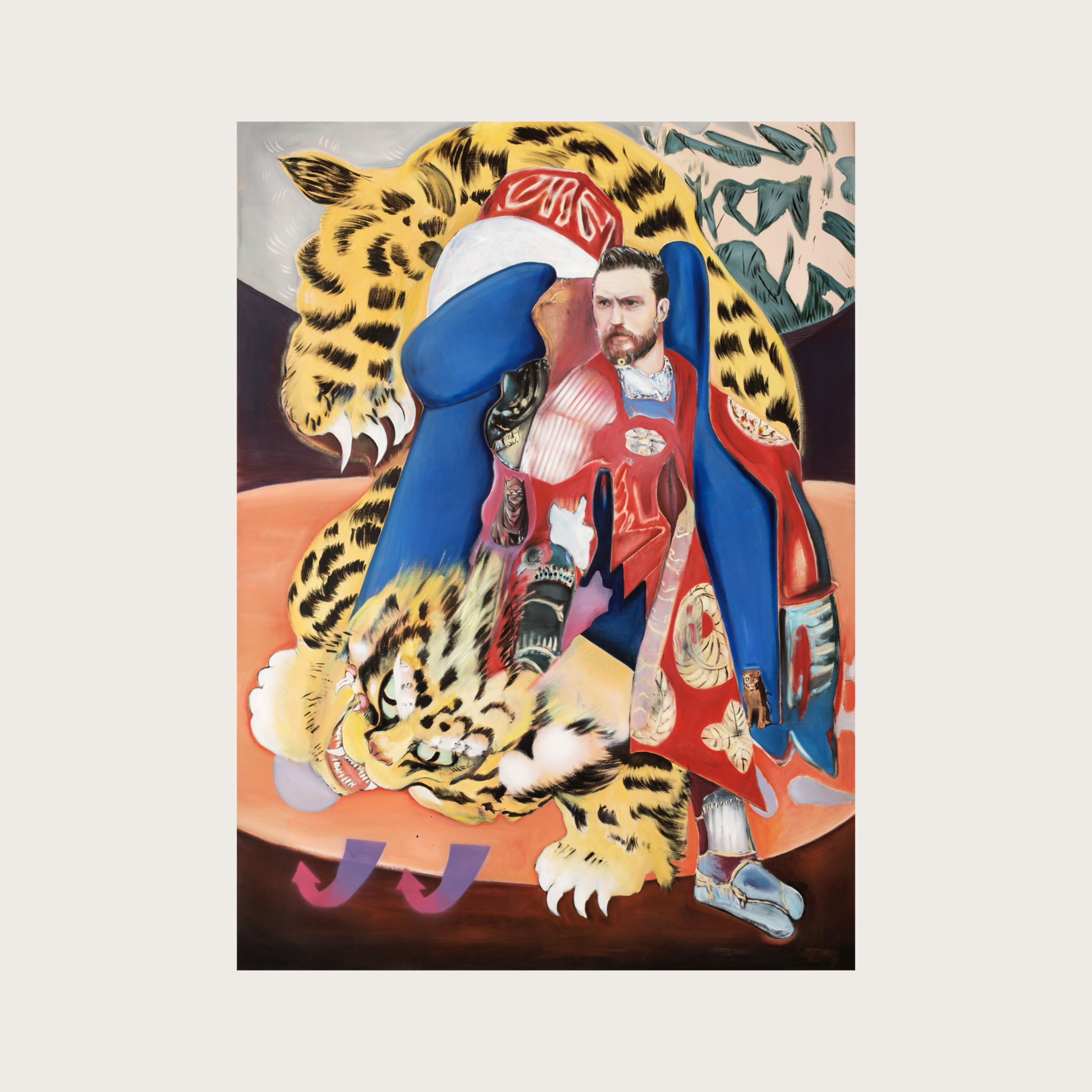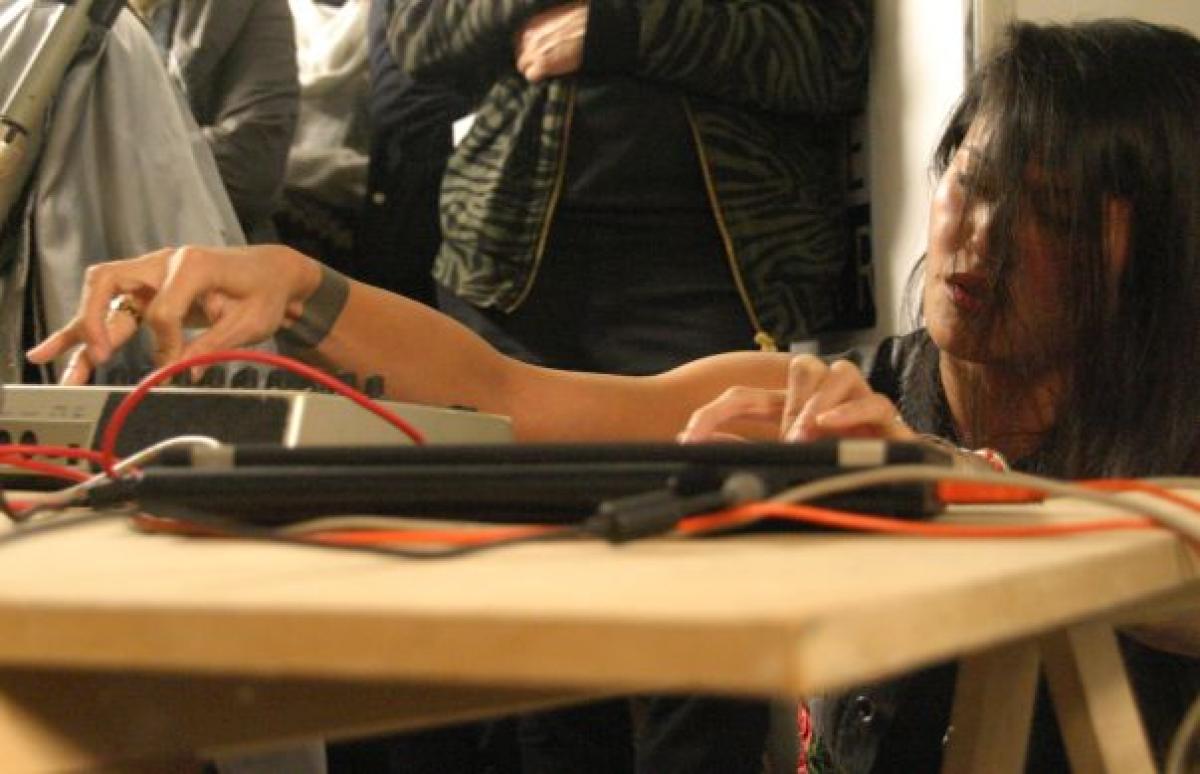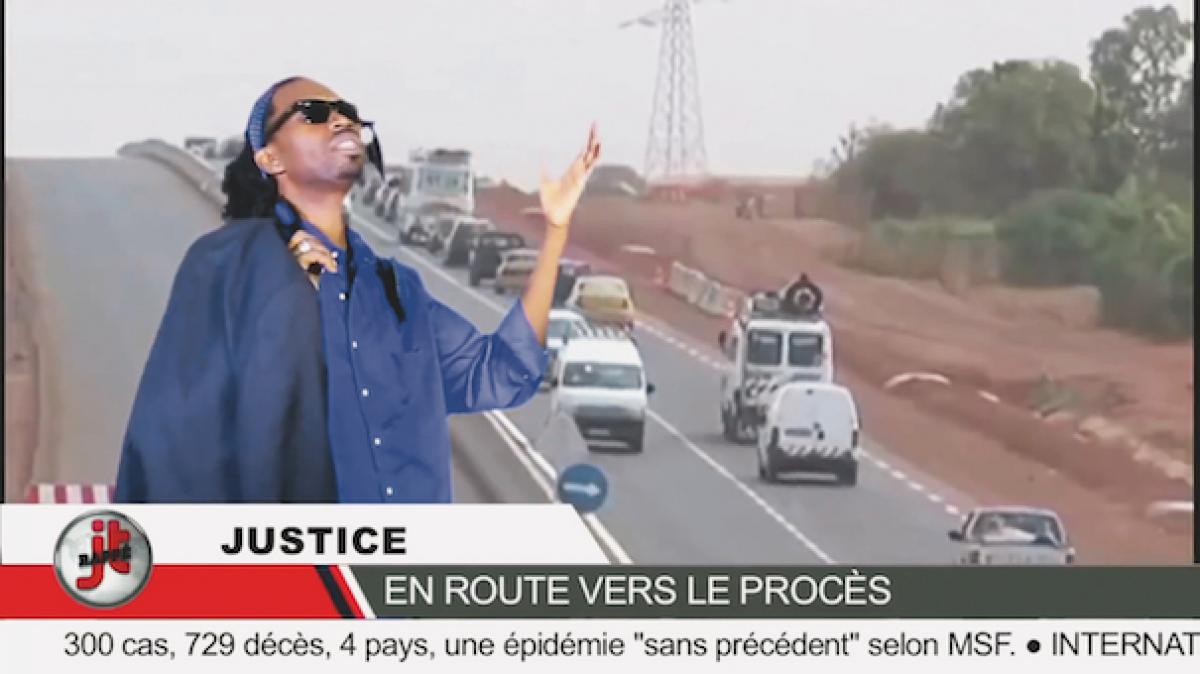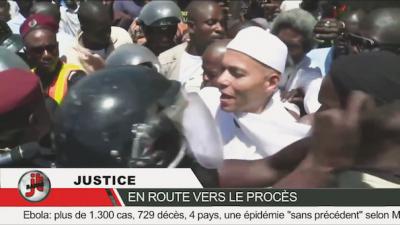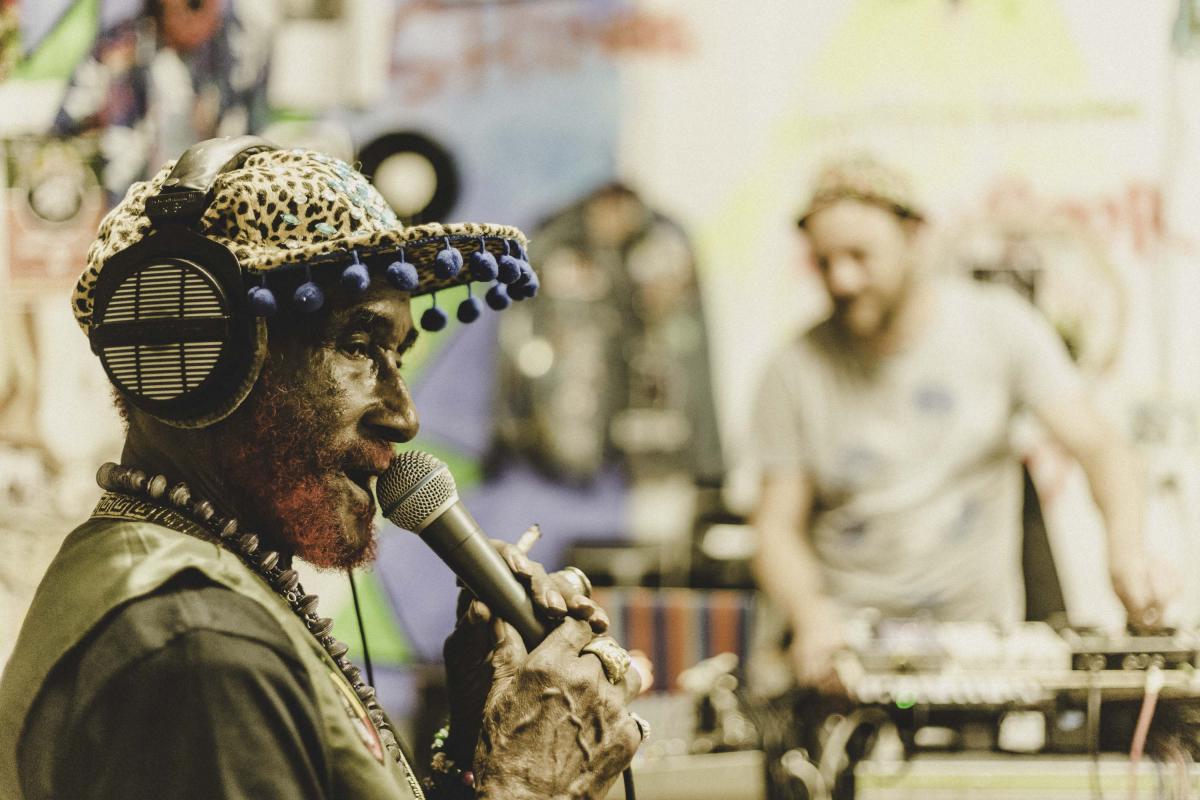
Alpine Dub Meets Jamaican Legend
First, there is the Jamaican musician Lee «Scratch» Perry, who is hailed as the living innovator of dub music. And second, there is the Swiss producer Dubokaj, who has invented the genre «Alpine dub». The two met in August 2017 for a session in the Swiss Mountains, where Perry has lived for more than thirty years. As it appeared, that Lee Perry was kind of «uninterviewable», Norient asked Dubokaj to tell us about his encounter with the Dub legend.
[Theresa Beyer]: Dubokaj, what role does Lee Perry play in dub music today?
[Dubokaj]: Today, primarily, he’s a living legend. He’s an impressive person who carries the experience and the knowledge of music production of almost a century. However, I have to be honest: his days as an innovative music producer are past. As far as I understand, today, he mostly works as a visual artist and as a poet.
[TB]: How were you able to set up a session with Perry at his house in Einsiedeln?
[D]: I called his wife and after a few emails back and forth we fixed a date for a session. Lee is still a busy artist constantly travelling the world and performing a lot, so I was happy to be able to meet him at his studio.
[TB]: How did the session go?
[D]: Actually we wanted to set up outside, with a nice view of the mountains, but the moment we arrived, a thunderstorm struck. Before we started, Lee had to block the doors to keep out demons. After measuring the vibes, calibrating the room, he assigned me the place where I could set up my equipment. Then we started jamming. I simply played and mixed my tracks and he sang. He seemed to like the Dubokaj sound and we went through a whole set. After a break, we listened to the recordings and started working more precisely on some ideas we liked.
[TB]: Lee Perry has a very fascinating aura. What did you find out about his musicality while improvising with him?
[D]: I was surprised how deeply I was touched by his voice. It’s like a door to another dimension, it’s also a window to the past. You basically travel in time, but you’re not sure if you travel to the past or to a parallel universe. I think Lee is hyper-sensitive. He sees and feels the world differently. And what he sings becomes a mantra somehow, it feels like it’s coming from far away, somewhere from outer space. Sometimes it’s just Dada, freestyle… but through the presence and deepness of his voice it becomes very strong and impressive. It was magic, no shit!
[TB]: You call your own approach to dub music «Alpine dub». With Lee Perry, you talked about echoes and resonances, which are crucial in dub music and in «Alpine sounds» as well. Could he connect with this concept?
[D]: He liked the idea of catching echoes in the Alps. I still think we should set up a dub session up in the mountains and try to record natural reverbs and delays. I had the impression that he liked my idea of finding a unique and personal way of producing local dub music. He lives in the Alps for thirty years now, so he knows the mood and is aware of «local» sounds. At least his reaction to the goat sounds I weaved in the mix was strong. But that’s also kind of obvious in the spiritual Rastafari context: since the goat means the devil, «fighting against the devil» is a main topic for him.
[TB]: You came with a cameraman and a long list of questions to Perry’s house. How did that interview actually go?
[D]: Already a normal conversation with Lee Perry was very difficult. He can’t find any focus, was walking through the room all the time and constantly working on his installations. So interviewing Lee Perry? That doesn’t work at all. However, he loved to take photos and I think we had a good connection through the music - and in the end, that’s the main thing and that’s why I came.
[TB]:You have later used the session with Lee Perry for a live set. How did you prepare the recordings for this performance?
[D]: First it took me two days to recover from this session! It had been such an intense experience. Later I went through the recordings many times and sampled what I liked and what I felt was worth it to use. Some parts are really bad and I had to cut them out. And some are so strong that I plan to release edits and even proper tunes.
Impressions from the Session
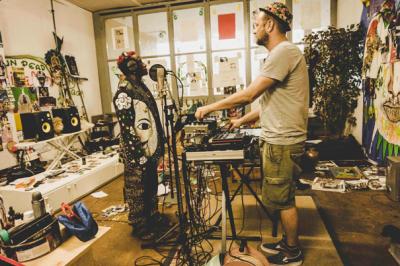
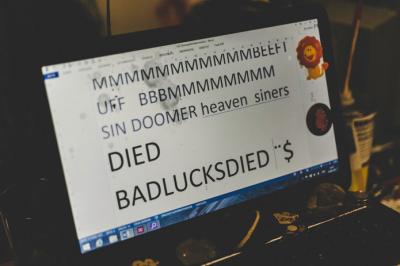
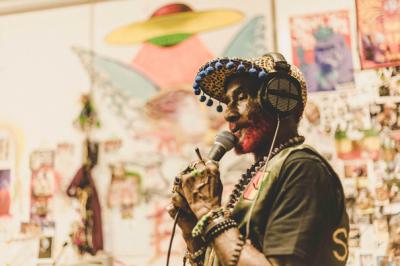
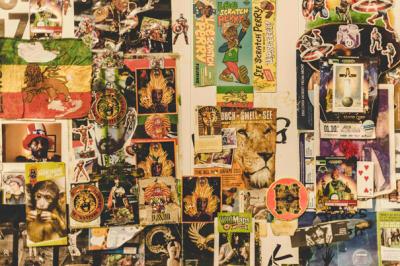
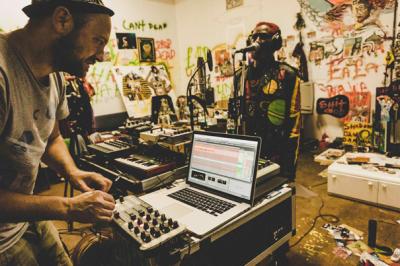
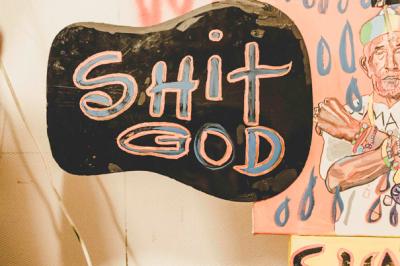
Video Portrait
Biography
Links
Published on November 08, 2017
Last updated on May 06, 2024
Topics
Sampling is political: about the use of chicken clucks or bomb sounds in current music.
From world known reggae musicians fighting against the devil to the black metal scene in Indonesia.
Snap
